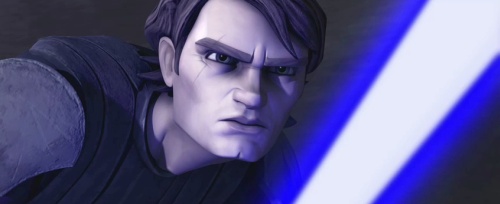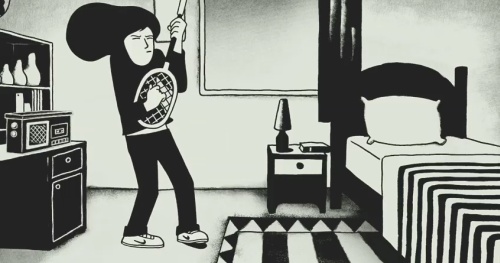Star Wars: The Clone Wars (Dave Filoni, 2008)

The first thing you need to know is that this is not a proper movie. It’s three episodes of an animated TV show strung together and released in the cinemas.
The second thing you need to know is that this is going to get (and has already received) some terrible reviews. Reading the first reviews from the usual geeky corners of the internet, like Harry Knowles’ rant or Alexandra Du Pont’s similarly disillusioned but much better written dismissal, you see these Star Wars nerds exorcising some demons and finally going to town on a Star Wars film. Even amongst all the hate for the prequels, there was always an undercurrent of indulgence as fans went looking for the good things. A similarly forgiving attitude was taken to the first animated Star Wars series by Genndy Tartakovsky (confusingly, also called Clone Wars, only without a leading “The”), which was generally well received by Star Wars nerds, who appreciated its emphasis on action and adventure. Now, though, by taking what is basically a CG-revamp of Tartakovsky’s take and having the temerity to put it on the big screen, it’s like Lucasfilm has given a green light to expressions of completely unabashed fan hatred. Those who respected Lucas’ past achievements, or Tartakovsky’s qualified success with a difficult format, are not going to feel any allegiance to Dave Filoni’s copy of a copy. In this context, the hate Star Wars: The Clone Wars is going to receive is perfectly understandable.
